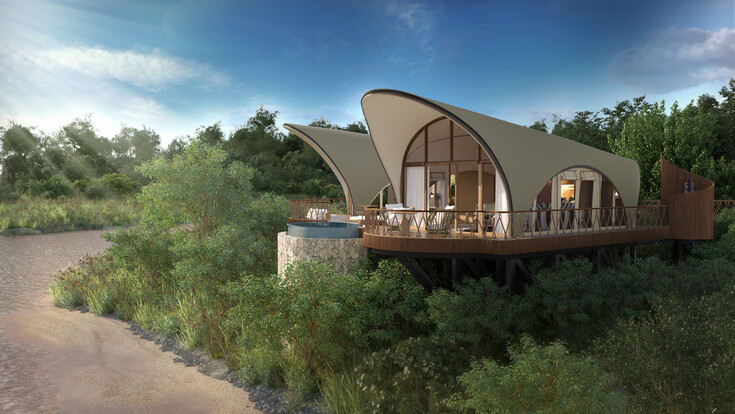

The much-anticipated Ritz-Carlton Masai Mara Safari Camp has received full regulatory clearance from both the National Environment Management Authority and the Narok county government, clearing the path for its official launch on August 15.
The luxury development — led in partnership with Lazizi Group — marks the Ritz-Carlton brand’s debut in Kenya and has already attracted significant interest from global tourism markets.
Located in the world-renowned Maasai Mara ecosystem, the safari lodge aims to position Kenya as a top destination in the high-end travel segment.
While some conservation groups have raised concerns about the lodge’s location potentially affecting traditional wildlife migration routes, regulatory agencies insist the project has met all legal and environmental standards.
“The Environmental Impact Assessment was thoroughly conducted in line with Kenya’s Environmental Management and Coordination Act. Public participation forums were held in April and May 2024, and all stakeholder views — including those from local conservation groups — were incorporated,” said David Ongare, Director of Compliance at Nema.
Narok county, which oversees the Mara’s land-use planning, also defended the development, saying it aligns with the Mara Management Plan 2023–2032.
“The site in question lies outside the sensitive migratory routes and complies fully with zoning regulations. Every approval granted was backed by technical reviews, community participation and alignment with our sustainable tourism goals,” said Mayiani Ole Tuya, Narok county secretary.
The project has drawn sharp criticism from conservationist Meitamei Ole Dapash, Director of the Maasai Education, Research, and Conservation (MERC) Institute. In a letter to Marriott International and various global conservation bodies, Dr Dapash accused the developer and authorities of “violating environmental laws” and “disregarding Presidential directives on wildlife corridors.”
“It is my firm and irretractable position that no projected economic benefits or marketing narratives can justify the long-term ecological damage being inflicted upon one of the world’s most iconic ecosystems,” he wrote.
In response, Lazizi Group, the project’s infrastructure partner, dismissed the allegations as “misleading” and “strategically timed to disrupt” the high-profile launch. “We see this not just as a hotel, but as a milestone for Kenya’s tourism industry. It’s about putting the Mara on the global luxury map while ensuring that communities and conservation efforts are front and centre,” said the group’s managing director Shivan Patel.
The Ritz-Carlton Masai Mara is expected to significantly enhance Kenya’s appeal in the luxury tourism space. The development has already attracted substantial bookings from international travel operators, according to Lazizi Group.
Tourism remains a pillar of Kenya’s economy, contributing 10.4 per cent to national GDP, according to the Kenya National Bureau of Statistics. The introduction of a globally recognised brand like Ritz-Carlton is seen as a strong signal of confidence in Kenya’s post-pandemic recovery.
Both Nema and Narok county maintain that the project has been designed to coexist with conservation priorities. Measures in place include buffer zones, wildlife monitoring and annual environmental audits.
“We are focused on low-impact, high-value tourism. Ritz-Carlton’s entry is part of our shift to fewer but more sustainable tourism investments that benefit local communities while protecting natural resources,” added Tuya.
In addition to tourism, the lodge will support community development initiatives, such as education bursaries, local artisan sourcing and water access projects.
Several local elders and women’s groups voiced support during public consultations, emphasising the need for tourism to deliver more direct community benefits.
Still, MERC and its allies have vowed to continue legal and international advocacy against the development.
With final touches underway, the Ritz-Carlton Masai Mara Safari Camp is scheduled to open its doors as planned on August 15, with support from both national and county governments.
Industry leaders hail it as a milestone that reflects Kenya’s evolving tourism strategy—one that seeks to integrate luxury, sustainability and local empowerment.
“Tourism is central to Narok county’s development strategy,” Tuya said. “This project exemplifies our commitment to sustainable tourism infrastructure, conservation partnerships, and equitable community benefit.”
Whether opposition efforts will result in legal delays remains to be seen. But for now, the project enjoys full regulatory approval and strong momentum heading into its official launch.












